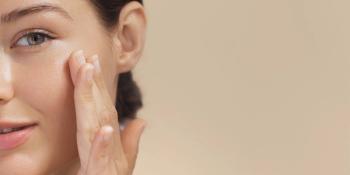
Collagen Supplement Reduces Eye Wrinkles, Study Shows
“In simple words: The participants looked considerably younger after the treatment,” said Stephan Hausmanns, PhD, Gelita’s vice president, health and nutrition.
Collagen peptides, when taken orally at 2.5 g/day, reduced eye wrinkles, according to a new study published in Skin
For eight weeks, the subjects were given a daily 2.5 g oral dose of Verisol, or placebo. Researchers measured skin wrinkle volume at baseline and at four and eight weeks into the treatment, as well as four weeks after the last treatment.
In the Verisol group, eye wrinkle volume significantly lessened four weeks into the treatment (more than 7.2% on average). After eight weeks of treatment, eye wrinkle volume reduced even further (20.1% on average and 49.9% at maximum). And these benefits continued after treatment stopped: four weeks post-treatment, eye wrinkle volume remained reduced, at 11.5%.
Researchers also examined a subgroup using suction blister biopsies to analyze pro-collagen I, elastin, and fibrillin content. They measured these at the beginning of treatment and again after eight weeks of treatment. They found a 65% increase in pro-collagen type I, an 18% increase in elastin, and a 6% increase in fibrillin after eight weeks of Verisol treatment.
"In contrast to most topically applied substances, this positive effect on the skin [reduction of eye wrinkle volume] seems to be caused by a direct impact on dermal extracellular matrix turnover, as demonstrated by a significant increase in collagen and elastin synthesis," the researchers wrote. "The direct effect on the dermal matrix might explain the long-lasting improvement of skin wrinkles for at least 4 weeks after the end of the supplementation of the collagen peptides."
They noted that the study only showed these effects for Verisol and not necessarily for other collagen hydrolysates or collagen peptides.
“In simple words: The participants looked considerably younger after the treatment,” said Stephan Hausmanns, PhD, Gelita’s vice president, health and nutrition, in a press release.
The University of Kiel in Germany conducted the study.
Previous Gelita studies on Verisol have shown benefits for skin elasticity. “Together, the results of the two studies provide a sound scientific foundation for the development of innovative nutricosmetics, which are used by a growing consumer group to complement topical applications and follow a more holistic approach to skin care,” the company said in a press release.
Newsletter
From ingredient science to consumer trends, get the intel you need to stay competitive in the nutrition space—subscribe now to Nutritional Outlook.




